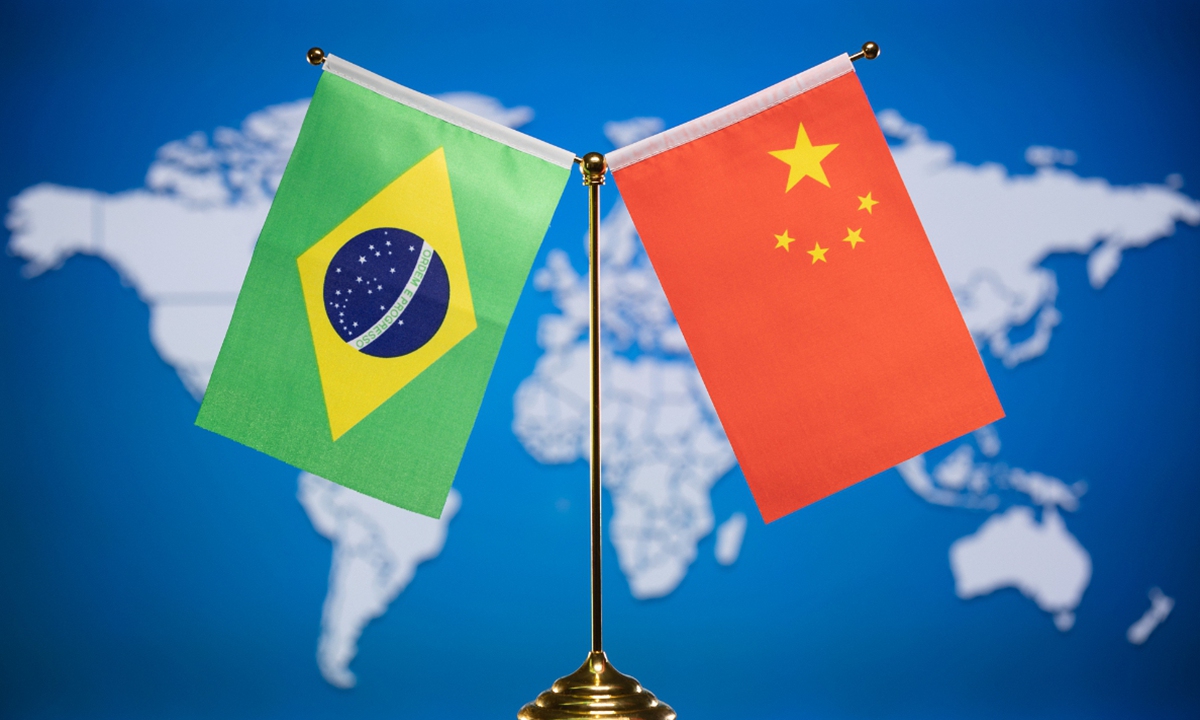China 'extremely' important to Brazil as consumer market, tech provider: chamber head

China Brazil Photo:VCG
China is extremely important not only as a consumer market for Brazilian food and minerals, but also as a provider of products and technology, Henry Osvald, president of the Brazilian Association for Industry, Commerce and Innovation in China (BraCham), told the Global Times, extending his expectations for deepening cooperation between these two major trading partners.

Henry Osvald, president of the Brazilian Association for Industry, Commerce and Innovation in China (BraCham) Photo: Courtesy of Henry Osvald
The remarks were made just after the visit of Brazilian President Luiz Inacio Lula da Silva to China from Saturday to Wednesday, during which 20 cooperation documents were signed, covering the fields of development strategy alignment, science and technology, agriculture, the digital economy, finance, inspection and quarantine, and media.
Commenting on the visit, Osvald said that he expected that bilateral trade relations between Brazil and China will further expand. "We are expecting a considerable increase in the exports of commodities such as soybeans, corn, cotton, meat, chicken and pork, among others, from Brazil to China, as well as more investment, companies and products coming from China to Brazil," he said.
China is Brazil's largest trading partner, despite global trade headwinds. According to data from China's General Administration of Customs, bilateral trade reached $188.17 billion in 2024, a year-on-year increase of 3.56 percent.
China is already playing a significant role in supporting Brazilian companies to expand their product portfolios, as well as in technology exchange and supplying products that are not competitive to produce locally, said Osvald.
"We hope this relationship will grow further as our countries complement each other," the BraCham president said, noting "We must learn from China to help Brazil become a better nation and create more business opportunities on both ends."
In addition to expanding Brazilian exports to the Chinese market, the chamber head said that there is a need for bringing more Chinese investment as well as technologies to help local companies in Brazil become more competitive and add value to the Latin American country's economy.
In the face of the impact of US tariffs, Osvald said, "It will cause strong disruption, as nobody can afford such high tariffs, which will lead to high inflation."



